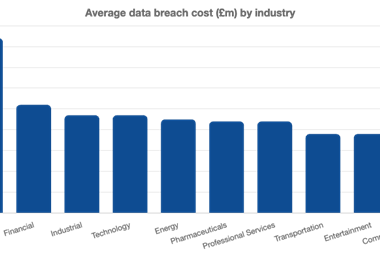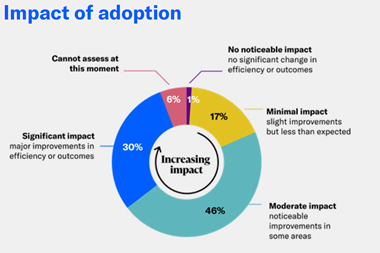Executive pay in the US has always outgunned the salaries offered elsewhere in the world, and the merits and demerits of such high remuneration packages have largely gone unchallenged by regulators, ordinary shareholders, and institutional investors. Even when challenges have been made, they have largely been pyrrhic victories. For example, in December 2002, disgraced telecoms firm WorldCom, laden with £25bn of debt due to its accounting fraud, was forced to cut in-coming chief executive Michael Capellas' proposed salary by 23% after US Federal Judges said that the pay package was 'grossly excessive'. But Capellas won the longer battle: because he managed to find a trade buyer - phone company Verizon Communications - to acquire the business in a US$6.75bn deal last November, and hence absorb its debts, Capellas still received in excess of US$26m within three years for 'restoring shareholder value' despite layoffs following the accounting scandal.
But Capellas' remuneration is a drop in the bucket. According to the American Federation of Labor-Congress of Industrial Organisations (AFL-CIO), the voluntary federation of America's unions, the biggest fat cat of 2004 was Yahoo Inc's Terry S Semel. In 2004, Semel, CEO, chairman and director of Yahoo Inc, raked in US$109,301,385 in total compensation including stock option grants. According to the AFL-CIO, Semel still has another US$395,874,498 in unexercised stock options from previous years.
Investors - particularly institutional investors - are still not very concerned with such stellar salaries, so long as they are linked to improved company performance and are easy for shareholders to understand. Henderson Global Investors, speaking for the majority, says that high rewards are acceptable if the company performs well. As part of its investment criteria, Henderson states that it 'expects performance conditions to be attached to all elements of remuneration - cash and share-based - that provide real incentives for high achievement. Substantial payments in situations where executives leave the company after performance has been poor - 'payment for failure' - should be avoided at all costs.'
Improving transparency
It is perhaps not surprising, therefore, that proposals by the US financial services regulator the Securities and Exchange Commission (SEC) to amend its executive compensation disclosure requirements to improve transparency have been broadly welcomed by large investors.
The SEC's proposals, if approved, would result in changes to Form 8-K, the 'current report' companies must file to announce major events that shareholders should know about, so that all disclosure related to compensation would be contained in a single item and be written in 'plain English'.
The proposals would require that a company's compensation disclosures begin with a new section captioned 'Compensation discussion and analysis'. This is intended as an overview in which companies would explain executive compensation policies and address questions, such as the objectives of pay policies, what they are designed to reward, and how remuneration is structured. The proposals would also require companies to explain how compensation levels for named executive officers - those deemed to be the most important people (not necessarily directors) working in the company - are set and how each element of compensation fits into the company's overall compensation program.
Currently, director pay disclosure in the US is outlined as a 'summary compensation table' in the accounts, but investors have complained for several years that a summary is inadequate. As a result, the new SEC proposals would add a column captioned 'Total compensation' whereby companies would be required to disclose the total amount of an executive's compensation obtained by adding together the amounts disclosed in all of the other columns, such as salary, pension and stock options.
Peter Chingos, a senior executive compensation consultant with Mercer in New York, already thinks that the SEC's proposals have had a positive impact. "The proposal has influenced proxy filings. We're seeing more stock option value and total compensation columns, director compensation tables, perquisite tables, and expanded discussions of the rationale behind the programs," he says.
Institutional investors broadly welcome the SEC's proposals. A spokesperson for one of the US' biggest pension funds, the California Public Employees' Retirement System (CALPERS), said that "We believe the SEC's proposals are a significant step in the right direction that will benefit shareholders over the long-term". He added that, "We can't assess the value of what we're paying executives unless we know what they're getting. We don't want to pay executives for failure, but all too often we see compensation increases while actual company performance declines. Research also shows that the gap is widening between what CEOs receive compared with the compensation of average employees in their companies. CEO pay is over the top, and the first step to address it is reporting all pay in basic English and simple math."
Valerie Ho, manager in the compensation research practice at proxy voting services firm Institutional Shareholder Services (ISS), says that "Without disclosure of the specifics of performance targets, shareholders are not in a position to assess if payments are warranted or justified". She also says that investors must play a stronger role in deterring inappropriate remuneration packages. "The revisions to compensation disclosure will serve shareholders well, provided that they, in turn, do their part as advocates in this process," says Ho. "Investors should continue their engagement and constructive dialogue with issuers to promote better disclosure of executive compensation."
EC recommendation
Much of the content of the SEC's proposals is already well-established in a number of jurisdictions in Europe and Asia, including France, the UK, Australia and Hong Kong. In October 2004 the European Commission, the EU's executive, adopted a non-binding recommendation on directors' remuneration, saying that member states should ensure listed companies disclose their policy on directors' remuneration and tell shareholders how much individual directors are earning and in what form, as well as ensure shareholders are given adequate control over these matters and over share-based remuneration schemes.
Former internal market commissioner Frits Bolkestein said: "There is a conflict of interest when executive directors take part in setting their own pay. Member states should ensure that companies get remuneration policy right and are seen to do so by investors. Proper disclosure and giving shareholders effective control are essential to restore confidence in EU markets."
The non-binding recommendation invites member states to require all listed companies to release a statement of their policy on directors' remuneration for the following year, as well as put remuneration policy on the agenda of the shareholders' general meeting and put it to a vote. The EU recommendation also says that companies should disclose detailed information about the total remuneration and emoluments of individual directors, as well as have shareholder approval of share and share option schemes.
However, the Commission's recommendation has not been universally welcomed. UNICE, the pan-EU business forum, is of the strong opinion that there is no need for remuneration policy to be a separate item on the AGM agenda. According to David Coleman, senior adviser of the legal affairs department at UNICE, "We feel that companies should not be obliged to provide shareholders with detailed information on the performance criteria forming part of the remuneration of the board or individual directors."
UK disclosure
In the UK, however, executive pay disclosure has been in practice for 20 years, with recommendations for independent remuneration committees stemming back 14 years. The Greenbury report on corporate governance issued 11 years ago made recommendations for disclosure of individual director pay awards, becoming part of the UK's Combined Code on Corporate Governance and brought into law with the Directors' Remuneration Report Regulations in 2002.
In December 2002 one of the UK's leading institutional investors, the Association of British Insurers (ABI), issued its Guidelines on Executive Remuneration. Among other points raised in the 24-page document, the ABI guidance says that all new share-based incentive schemes should be subject to approval by shareholders. It adds that annual bonuses, normally payable in cash, should be related to performance. Furthermore, the guidance states that both individual and corporate performance targets should be disclosed. The investment community has largely adopted the ABI guidelines as its bible, and has frequently threatened UK companies with votes against their policies if management strategy is not in line with its contents.
Carl Sjostrum, partner in the executive compensation practice at professional services firm KPMG, says that the SEC's proposals are still not as extensive as the principles regarding executive pay and disclosure adopted in the UK. "Most corporate governance requirements in the UK have come from the combined code on corporate governance. The 'comply or explain' principle has firmly taken root in the UK, and the vast majority of companies have accepted the spirit of it for several years. The US is getting there, albeit slowly, but through regulation rather than through suggested best practice"
- Neil Hodge is a freelance writer.



















